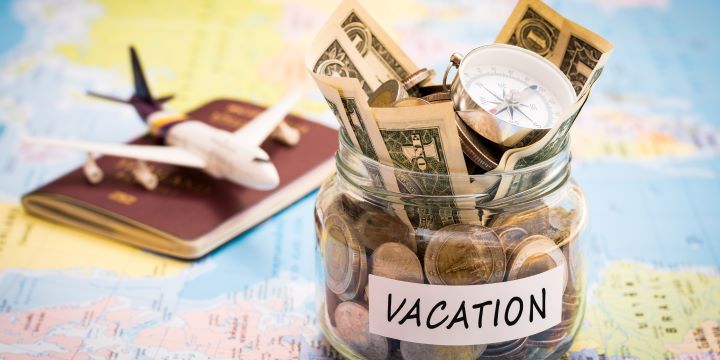Table of Contents:
- The Evolution of Travel Booking: From Travel Agents to Digital Deals
- Understanding Dynamic Pricing in Travel
- Leveraging Discount Codes and Coupons for Accommodation Savings
- The Art of Timing: When to Book for the Best Deals
- Rewards Programs: Are They Worth It?
- The Hidden Gems: Finding Under-the-Radar Deals
- The Impact of Reviews and Ratings on Making Cost-Effective Travel Decisions
- Travel Insurance: A Cost-Savings Tool in Disguise?
- Budget-Friendly Travel Accessories That Can Save You Money
Key Takeaways:
- Discover how the travel booking landscape has evolved and benefits the savvy traveler.
- Learn to navigate the waters of dynamic pricing and make it work in your favor.
- Explore strategies for finding and effectively using discount codes and coupons for travel savings.
- Understand the best times to book travel and accommodations for the best possible rates.
- Loyalty and rewards programs can lead to significant travel savings.
- Learn how to hunt for those hidden, under-the-radar travel deals that others may miss.
- Grasp the importance of using reviews and ratings to make cost-efficient travel decisions.
- Evaluate the potential cost-saving benefits of investing in travel insurance.
- Identify which travel accessories can lead to savings and intelligent packing tips.
- Get a step-by-step guide to planning a budget-friendly trip without sacrificing the joy of travel.
The Evolution of Travel Booking: From Travel Agents to Digital Deals
Travel booking has transformed over the years, moving from the travel agencies on every high street to the fingertips of anyone with internet access. Historically, travel agents were the only source of valuable information and exclusive discounts. Through such advancements, travelers have gained the agency to make informed decisions and secure the best possible travel experiences at the most affordable rates.
This virtual revolution has also allowed for a more transparent market, where price comparisons are simple, and the best rates are just a few clicks away. But with this ease comes an overwhelming amount of choices, making the adeptness to navigate through a maze of options a must-have skill for travelers looking to save money. In the following sections, this article will explore the myriad ways digitalization has allowed for more competent booking practices that are firmly within the client’s control.
Understanding Dynamic Pricing in Travel
With the rise of digital technology, planning a trip no longer requires visiting an office; it can be done from the comfort of one’s home—or even on the move through a smartphone. This accessibility has birthed a new era of competition among online travel providers, leading to more frequent offerings of compelling deals, like those found when booking with Best Western. In travel booking, understanding dynamic pricing is akin to mastering the negotiations of an open-air market. This mercurial pricing strategy, employed by airlines and hotels, considers factors like booking patterns, predicted demand, and remaining inventory, setting a stage where prices change almost as fickle as the weather. But rather than being at the mercy of this system, travelers can use it to their advantage. By gathering data on historical pricing trends and observing patterns, savvy voyagers can often predict when prices might dip. Certain days of the week, such as Tuesdays and Wednesdays, may offer lower flight rates than weekends when demand is typically higher.
Moreover, setting up price alerts has always been challenging with many travel deal sites available. These alerts act as watchdogs, barking up a storm when prices drop, ensuring you can seize those deals immediately. With a keen sense of timing and an understanding of the factors influencing price fluctuations, passengers can beat airlines and hotels in their own game.
Leveraging Discount Codes and Coupons for Accommodation Savings
The modern treasure hunt for travelers isn’t buried on a deserted island but hidden in the digital realm of discount codes and coupons. These precious alphanumeric sequences can be the key to unlocking significant savings on accommodation. In a world where the cost of travel seems ever-increasing, leveraging promotional offers is a smart way to lessen the financial burden. Websites that aggregate discounts often partner with hotel chains to provide exclusive deals. Searching for these offers can pay dividends, slicing a considerable percentage off your final booking cost.
Interestingly, many travelers need to realize the addictive power of these discounts. Often, promotions can be combined with existing deals or loyalty points to compress costs even further. For those willing to invest a little time in the hunt, articles like Saving on Stay: Insider Tips on Hotel Discounts from Condé Nast Traveler can demystify the process and provide valuable insights into applying discount codes to maximize travel savings effectively.
The Art of Timing: When to Book for the Best Deals
Much like finding the perfect moment to jump into double Dutch, mastering the art of timing can help you land impressive deals on travel bookings. Statistical analyses reveal patterns that can be utilized to optimize spending. For airborne travels, booking a flight about six weeks in advance for domestic travel and three months prior for international jaunts corresponds with the lowest fares. If your travel dates are set in stone, this strategy offers predictability and financial efficiency. However, if your schedule allows flexibility, the pendulum swings between pre-emptive bookings and grabbing last-minute deals.
On the hotel front, while booking ahead is often prudent, some suggest that hotels might drop their prices as the night approaches if they still have rooms to fill. It’s a dance between the assurance of early booking and the gamble of last-minute deals. The latter can be a boon for the daring and adaptable traveler, potentially chopping a significant portion off standard rates.
Rewards Programs: Are They Worth It?
Rewards programs dangle the promise of future savings for today’s spending. But is the carrot worth the chase? For frequent travelers, the answer can be a resounding yes. Most rewards programs offer a points system where earned points are redeemable for discounts, perks, or even free stays and flights. Fidelity to specific brands can reap lavish rewards: room upgrades, late checkouts, and other VIP treatments that enhance travel experiences and save money. Whether it’s hotel chains like Best Western, airlines, or credit cards offering travel points, the key to getting the most out of rewards programs is selecting those that offer the highest value relative to the least spending and redemption flexibility.
Therefore, a patient’s accrual of points throughout routine business trips, vacations, or even everyday spending can culminate in significant earnings. It is important to note that while some programs require unswerving loyalty, others might offer more lucrative returns with a more liberal approach, allowing you to book wherever savings are highest without sacrificing reward potential.
The Hidden Gems: Finding Under-the-Radar Deals
The most satisfying travel deals are often the ones that feel like a well-kept secret—discovered by those who take the road less traveled when it comes to deal hunting. In the social media and digital communication age, travel companies frequently share exclusive offers with their followers or email subscribers. These ‘hidden gems’ can offer substantial savings or unique experiences unavailable through standard booking channels. Additionally, maintaining memberships with specific organizations or groups can often grant access to special rates not widely advertised. On rare occasions, this can mean a spontaneous weekend getaway is suddenly within reach, or a luxury hotel becomes just as affordable as a mid-range alternative.
Being active on various social media platforms, subscribing to newsletters, and employing deal-alert apps can result in fantastic finds, often at a moment’s notice. Expanding your deal-searching radar beyond the usual suspects allows you to encounter opportunities that add a special sparkle to your travels without the premium price tag.
The Impact of Reviews and Ratings on Making Cost-Effective Travel Decisions
In this digital era, reviews are more than just a repository of customer feedback; they are a goldmine for discerning travelers seeking value. While a five-star hotel may exude luxury, a four-star property with glowing reviews may offer a comparable experience at a fraction of the price. This democratization of travel information means that an intelligent traveler can parse through the experiences of others to identify genuinely cost-effective choices. A hotel’s reputation for clean rooms, friendly service, and a complimentary breakfast could indicate value beyond the nightly rate. Conversely, a place with lower room rates but middling or negative reviews may cost more in the long run, whether through additional out-of-pocket expenses or a diminished travel experience.
Thus, actively engaging with the knowledge repository amassed in reviews can be just as crucial as any deal or discount. Journeying through ratings focusing on the elements that travelers value most can ensure a selection that promises satisfaction without the sting of an outrageous bill.
Travel Insurance: A Cost-Savings Tool in Disguise?
At first glance, travel insurance might seem like an unnecessary extra, a fee tacked onto the cost of an already expensive venture. However, experienced globetrotters understand that the true worth of travel insurance lies in its ability to safeguard against unforeseen and often sizeable expenses. In the event of a cancellation, an injury, or even a global pandemic shutting down travel, the protections afforded by a reasonable travel insurance policy can spare holiday-goers from financial disaster. A policy’s cost often pales compared to what one might pay out-of-pocket in a medical emergency or for a last-minute flight replacement.
The decision to purchase travel insurance should hinge on a careful assessment of the risks involved with your trip and the policy’s coverage terms. Choosing the right travel insurance is a pivotal, cost-saving decision, transforming a potential calamity into a manageable hiccup on your journey.
Budget-Friendly Travel Accessories That Can Save You Money
While the allure of shopping for trip-specific gear can be strong, prioritizing functional, budget-friendly travel accessories can result in future savings. Gadgets like digital luggage scales can save you from the shock of overweight baggage fees, and travel-size appliances can prevent reliance on often over-priced hotel accommodations. Packing cubes keep your belongings organized and accessible, potentially saving you from excess baggage or the need to purchase forgotten items.
Additions like a durable, reusable water bottle or collapsible containers can cut costs associated with dining on the go, and a well-stocked first-aid kit can negate the need for expensive pharmacy trips. Strategic packing that circumvents airline weight restrictions and is mindful of potential on-the-road needs will invariably keep more cash in your pocket for the experiences that matter.





